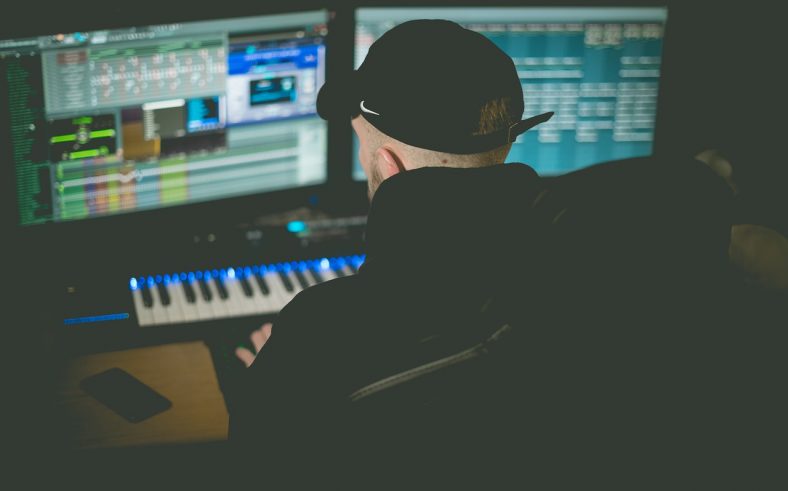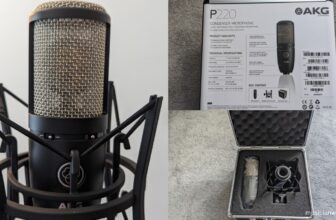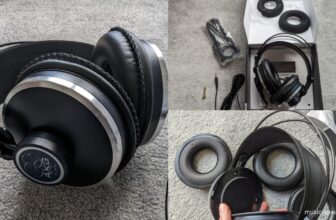How to Choose a Computer for Music Production

A powerful computer is crucial when you start getting serious about music production. You can produce music on most computers and laptops available on the market. For better efficiency, you should consider investing in a better computer if you plan to go serious with music production.
For a good workflow, the following specs are considered the minimum requirements:
- CPU – Intel i3 Processor or equivalent (A higher-powered processor is highly recommended if your budget allows)
- RAM – 8GB memory
- Storage – around 500 GB of storage space, with preferred SSD or NVMe for faster workflow. Audio samples and projects take up a lot of space. You can use less space
- Monitor – at least a 15-inch screen size is recommended for a broad overview of tracks and plugins. Multiple screens with higher resolution are preferred.
- External HDD or SSD – This is recommended for backup and storage of projects and libraries with good quality hardware like a mouse, keyboard, and power stations for efficient workflow.
To learn more details and make a better choice according to your needs, keep reading.
Contents
CPU
CPU is the most important element of music production. It determines how many processes you can perform at a time and how efficient your workflow is. Almost every DAW will work on pretty modest CPUs, such as Intel i3 processors or equivalent. But, depending on the DAW, some might struggle and will need a sufficient upgrade.
Intel i7 or AMD Ryzen 7 CPUs are both great CPUs for music production. However, they can be outside of the budget for many budding producers.
The CPU will affect everything in all stages of your audio production. This includes using samples, loading multiple instruments, recording, and using plugins for mixing and mastering.
With a powerful CPU, you can make all these things much faster and more efficient. Two things play a major role, clock speed and the number of cores. With a higher clock speed, you can perform tasks at a faster rate and more cores result in multitasking more effectively.
Regardless of the digital audio workstation, you use both of these features to make your workflow more effective. Depending on your budget, you should get the best possible combination of both. You can check out the best CPUs for music production.
The most popular choices on the market as of now are Intel or AMD processors. For music production, both will work great. Generally, AMD processors are relatively cheaper, but you should still look into both before making your choice.
For a laptop, I would recommend looking into higher-end options. When compared to a computer, a laptop does lag in performance so it would be better if you go for a higher-end choice as a longer-term investment.
Storage
After the CPU, the most important thing you will need to focus on is the storage. Since all your software and sound libraries will require sufficient storage space, you should invest in this area. A good SSD will also make your system run faster and smoother. Moreover, good storage will keep all your work safe and secure.
With storage, you get two options. A Hard Drive Disk (HDD) or Solid-State Drive (SSD). A good SSD will be more expensive than an HDD but it will come with great benefits of speed, smaller size, and more secured data. If your budget does not allow you to get an SSD you can still go for an HDD but it will be a bit slower loading samples.
An even better option will be to go with NVMe which is a specific type of SSD that gives a high-end performance. Granted, it will be more expensive as it comes with a lot better optimization and speed which makes it a superior choice as compared to others.
When it comes to the size of storage, you should be looking for at least 500 GB of data space available on your computer. Because of the large sizes of software and big sample library packs, you will require a lot of storage space. It’s better to have extra space than wasting time managing files and folders.
Apart from that, I would also recommend investing in external storage. External storage keeps all your important things like compositions and favorite libraries, and custom packs safe. That would be just in case the primary storage does not work or gets corrupted.
How Much RAM Do You Need for Music Production?
8GB of RAM for music production is sufficient. But, a better RAM will result in quicker transitions, better response time, file conversions, and so on.
Usually, a minimum of 8 GB RAM is enough but do consider upgrading as it will only benefit you. If you work with big libraries of a lot of software instruments at the same time, then you might consider upgrading to 16GB of RAM. Because loading up instruments every time you want to make an edit or choose a different sound takes up RAM.
Considering your budget, try to find an all-rounder as best you can. If you hit a sweet spot with sufficient CPU, storage, and RAM, it is recommended and will benefit you a lot. You” have much-needed speed, and seamless workflow, while avoiding unnecessary crashes and glitches.
Windows or Mac?
When it comes to choosing the type of operating system to use, both Mac and Windows are very capable of getting the job done effectively. Though Mac machines as a whole have better control of their hardware standards and are more optimized for audio out of the box.
It takes a lot of time and research to choose a computer that fits your budget and does the work you need. Generally, Macs are more expensive than Windows options available. But Mac comes with added benefits.
Mac is much more reliable compared to Windows since there are only a handful of models available to choose from which means less time wasted. With Windows, you will have to go through all the different options available on the market. You’ll sort out different manufacturers to compare them and their specifications to make a more educated choice.
This does take a lot of time and effort, but it is worth it if you are on a tight budget because it gets you more with less cost. Moreover, Windows PCs are generally customizable so you can make one based on your preferred specs and upgrade at any point if needed.
As long as you are not using an exclusive software like Logic Pro X which only comes in Mac, most support for both Windows and Mac. So, for a studio setup, you can prefer to choose any of those two.
Check out Mac vs Windows for Music Production for even more thoughts and opinions on this subject!
Laptop vs. Desktop?
This choice usually depends on the individual because both have their pros and cons respectively.
If you are more of a traveling musician and like to work on the go then you should go for a laptop because of its portability and all-in-one design. A laptop is a perfect workstation for a traveling musician or just a beginner who wants a more flexible option.
On the other hand, if you are looking for a work beast then you should always choose a computer as your workstation. It is much more capable to handle big sessions and is more preferred in professional setups. Although they are not as portable as laptops, they offer greater performance and expansion options.
Since it is much more customizable, you can pick and choose what kind of specifications you want. You can make the best choice depending on your budget. A laptop, on the other hand, only gives you a few options to choose from and a lesser amount of customization options.
Consider your requirements and options before making the choice.
What computer do most music producers use?
Many producers choose to work on iMac machines in their studios or a Macbook Pro if they choose to go with the laptop route. Out of the box, Mac machines tend to be more stable and optimized for audio. However, there are plenty of producers that use Windows machines and are very successful.
Some producers like deadmau5 prefer Windows because of the flexibility to customize it. With proper specifications and requirements met for the software, you can have an equally good workflow and results in a windows PC.
Is i3 good for music production?
If you are looking to do basic music production like making beats or demos for a songwriter, then it will work. But you should keep in mind that you may be limited to using only a handful of CPU-intensive plugins at a time.
Not all plugins were created equal. The stock plugins that come as part of DAWs can often be extremely efficient and even work well on low-powered CPUs. For example, Ableton Live’s instruments and effects used to work well for me on even low-powered netbooks.
Because of the relatively low capabilities of an i3, you may end up crashing your session if you push the software too hard. Your CPU won’t take the load. It is not preferred for mixing and mastering because it probably will not be able to take the workload.
If you are a songwriter who just wants to get your ideas recorded and use small bits like basic beats to make a demo, then it should work fine. But, I don’t recommend going for an i3 processor if you are serious about music production. Even if you are a songwriter who is serious about getting your ideas out and about music, I would recommend going for at least an i5.
Is AMD Ryzen good for music production?
AMD Ryzen CPU can be just as good as Intel CPU when it comes down to performance. Their performance is quite good when they are compared to their Intel counterparts. I would recommend you pay attention to the number of cores and processing power of the CPU.
I would still not recommend you go with the AMD Ryzen 3 for your main workstation. Just like i3, this CPU is still not enough to get the work done other than some basic tasks.
32-Bit or 64-Bit?
Unless your computer is ancient, it’s likely to be 64-bit. Although the world has moved on to 64-bit as a standard for computing, there are still 32-bit or 64-bit plugins.
A 64-bit computer will always be a better option because it will give a more precise audio representation. This results in better sound quality. Because 64-bit computers can access more memory or RAM, the performance will always be better. If you are choosing a DAW and you have the option of running it in either 64-bit or 32-bit, then use the 64-bit version.
If you are working on a 64-bit machine there is a workaround option to run your older 32-bit plugins. This is done via a bridge that some digital audio workstations use automatically to run on your workstation. There is also software like jbridge which can be used to run 32-bit plugins on 64-bit software.
Summery
A great music workstation can handle all your audio processing and support your audio workflow. As a creative professional, wasting time and breaking the flow because of some issues in your workstation is the worst that can happen.
If you are out of your creative flow, it’s close to impossible to get back in. It will only lead to frustration and you may not even have the desire to make music anymore.





